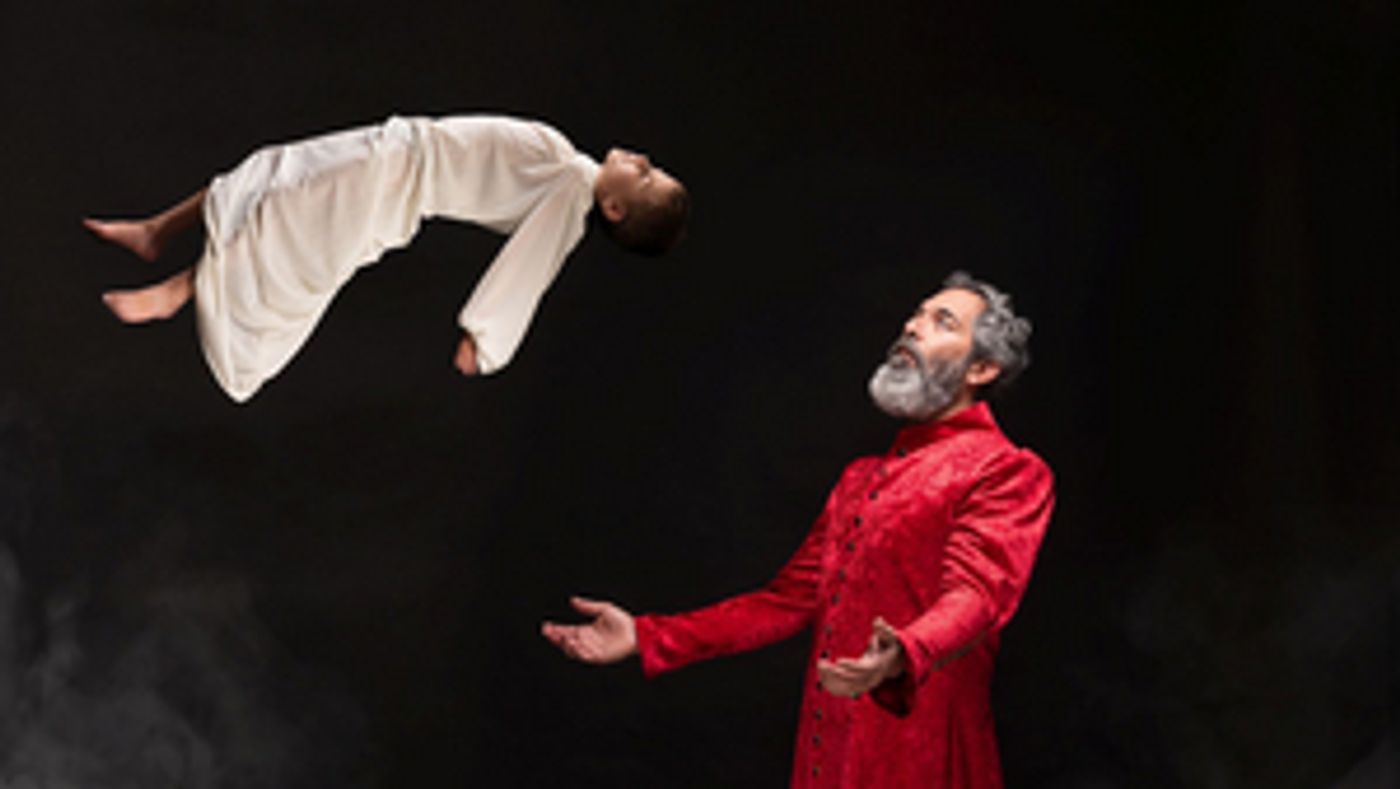THE CONSTANT MOURNER Comes To Cameri Theatre Tomorrow
The production is directed by Ari Folman.

THE CONSTANT MOURNER begins performances tomorrow at the Cameri Theatre. The production runs through September 29th, 2021.
In this play by Hanoch Levin, a king torments himself repeatedly by reenacting the rituals that accompanied his son's death from an illness. The stage is influenced by early German films, and is styled in black and white with animated elements that change the landscape and the atmosphere, creating a unique interaction with the actors. The design of the characters also corresponds with this cinematic genre, but their acting ranges from compassion to brutal indifference. Efrat Ben Zur composed the music, which she performs with musicians on stage. The overall effect is a chilling and frightening world of wonder.
In the best of Levinic tradition - the play follows surprising paths into the depths of the soul and the illusions of imagination. It is an unmatched experience, yet so relevant to our daily lives. Hanoch Levin called the play a "whining comedy," but perhaps it's more appropriate to call it a tragic comedy, or maybe a human tragedy, in which Levin mixes, as he does, the tragic with the comic, the terrible with the everyday and banal.
In the palace nursery the King's son is dying of an illness. An entourage of consulting doctors, advisers and self-appointed experts are rushed in to save the day, but then, when all seems to be lost, and in the best of Levinic tradition - the play follows surprising paths into the depths of the soul and the illusions of the imagination. It is an unmatched experience, yet ever so relevant to our daily lives. Hanoch Levin called the play a "whining comedy," but perhaps it's more appropriate to call it a tragic comedy, or maybe a human tragedy, in which Levin mixes, as he does, the tragic with the comic, the terrible with the everyday and the banal.
Hanoch Levin was born in Tel Aviv on 18 December 1943, and died of cancer on 18 August 1999. He wrote plays, sketches, songs, stories, and poetry, and also directed most of his own plays. In his work as a playwright and stage director, he developed a unique dramatic and theatrical language, created by combining poetic written text with images designed with the actors, the set, costume and lighting designers, the composer, and the choreographer. His plays are characterized by his ability to combine the work of different artists, and have always been a celebration of words and visual images, based on a great love for the theatre and all who take part in the performance.
Levin left a spiritual-artistic legacy, which includes 56 plays (except for his political satires, only 33 of his plays were performed in his lifetime), two books of prose, two collections of sketches and songs, a book of poems, and two books for children.
Videos

